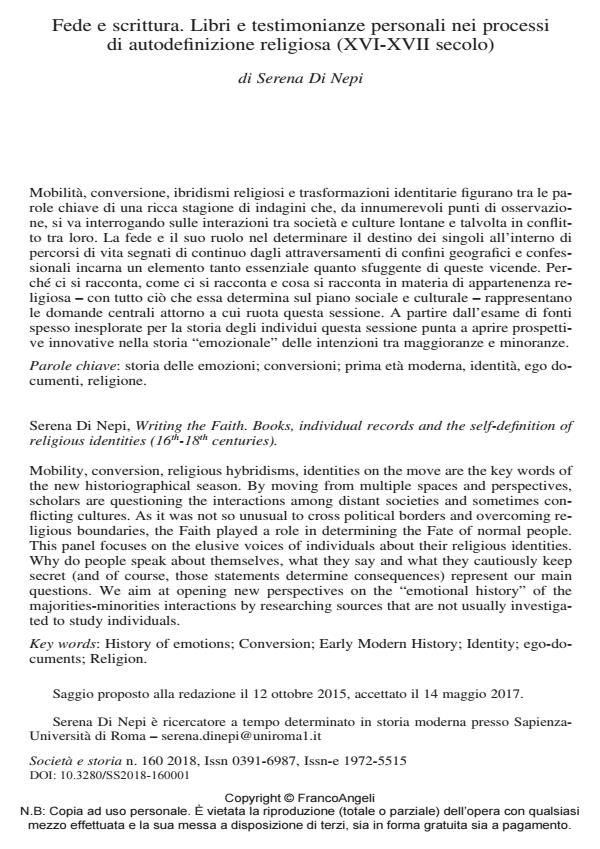Writing the Faith. Books, individual records and the self-definition of religious identities (16th-18th centuries).
Journal title SOCIETÀ E STORIA
Author/s Serena Di Nepi
Publishing Year 2018 Issue 2018/160
Language Italian Pages 8 P. 241-248 File size 99 KB
DOI 10.3280/SS2018-160001
DOI is like a bar code for intellectual property: to have more infomation
click here
Below, you can see the article first page
If you want to buy this article in PDF format, you can do it, following the instructions to buy download credits

FrancoAngeli is member of Publishers International Linking Association, Inc (PILA), a not-for-profit association which run the CrossRef service enabling links to and from online scholarly content.
Mobility, conversion, religious hybridisms, identities on the move are the key words of the new historiographical season. By moving from multiple spaces and perspectives, scholars are questioning the interactions among distant societies and sometimes conflicting cultures. As it was not so unusual to cross political borders and overcoming religious boundaries, the Faith played a role in determining the Fate of normal people. This panel focuses on the elusive voices of individuals about their religious identities. Why do people speak about themselves, what they say and what they cautiously keep secret (and of course, those statements determine consequences) represent our main questions. We aim at opening new perspectives on the "emotional history" of the majorities-minorities interactions by researching sources that are not usually investigated to study individuals.
Keywords: History of emotions; Conversion; Early Modern History; Identity; ego-documents; Religion.
- Quale storia della società? Uno sguardo sull'epoca moderna Paola Bianchi, in SOCIETÀ E STORIA 178/2023 pp.711
DOI: 10.3280/SS2022-178005
Serena Di Nepi, Fede e scrittura. Libri e testimonianze personali nei processi di autodefinizione religiosa (XVI-XVII secolo) in "SOCIETÀ E STORIA " 160/2018, pp 241-248, DOI: 10.3280/SS2018-160001